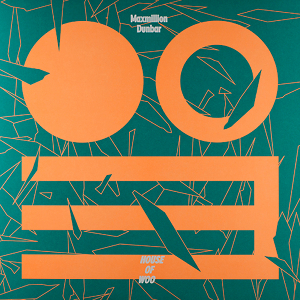Maxmillion Dunbar House of Woo
Andrew Field-Pickering’s work as Maxmillion Dunbar has always had a restless quality. Unlike so much […]

Andrew Field-Pickering’s work as Maxmillion Dunbar has always had a restless quality. Unlike so much that might be termed restless, however, his releases have never felt overstimulated. Instead, their diversity comes from a more exploratory bent, like the result of hearing a boogie song from the early 1980s and wondering if it could be transformed into a dancefloor-ready jack track. Field-Pickering has wide-ranging tastes: the website of Future Times, the label he co-runs, is as much a haven for the label’s influences as it is an official site, and his mixes incorporate everything from Talking Heads to Drexciya. House of Woo is his first album for the similarly adventurous New York label RVNG Intl., and shows this sensibility is alive as ever.
Of course, experimenting with different styles can seem a bit dilettantish. Field-Pickering typically avoids this—as varied as his productions may be, he tends to use a definable palette of sparkling new-age tones, enhanced by plentiful reverb and compression. Still, there’s something of a beat-tape quality about House of Woo which keeps it from fully cohering. Part of this may be due to sequencing, which may suffer from front-loading. Early single “Woo” is among the most boisterous pieces Field-Pickering has produced, sitting alongside past efforts “Polo” or “Girls Dream” in terms of sheer hooks. It’s also the nearest he’s come to matching Newworldaquarium, one of his acknowledged influences. The song’s repetitive melody shimmers psychedelically, and there seems to have been a lot of work put into its kicks’ weighty thud. It’s followed up by a series of tracks that revel in their brokenness, and few burst forth with such confidence. “Peeling an Orange in One Piece” comes closest, as its misty pads, dreamlike Eastern flutes, and wonky, stumbling drums lend it a tranquil glide. One wonders if the album was titled in tribute to the director John Woo, as this track in particular could easily soundtrack one of his hyper-stylized, slow-motion gun battles. The “Nod” mix of “The Figurine” also impresses, repeating a softly tinkling sample—which sounds a bit like Hall & Oates—and barely there rhythm to humidly hazy effect. “World Taste Sweet” goes for a similarly low-slung, slow-motion groove, while “Ice Room Graffiti” is a slice of bumpily infectious, squeaky-brass-infused house.
Field-Pickering’s more broken material isn’t uninteresting either. The disjointed “Kangroo” is a collage-like mesh of jazz samples, decimated strings, free-floating percussion, and a wildly bent, Mr. Fingers-style synthline, and comes across like a less claustrophobic Madteo track. Although experimental numbers like the clanging “Inca Tags” or the subby, frenzied “Coins For The Canopy” contain the producer’s signature elements, they also break up the record’s flow. As a result, a full listen to House of Woo gives the impression of a lack of ambition, or on the brighter side, humbleness. Field-Pickering isn’t yet the type to release a grand album statement, but so far, his best moments have been the monolithic ones. Now, it’s just a matter of amassing enough of them for a long-player.

